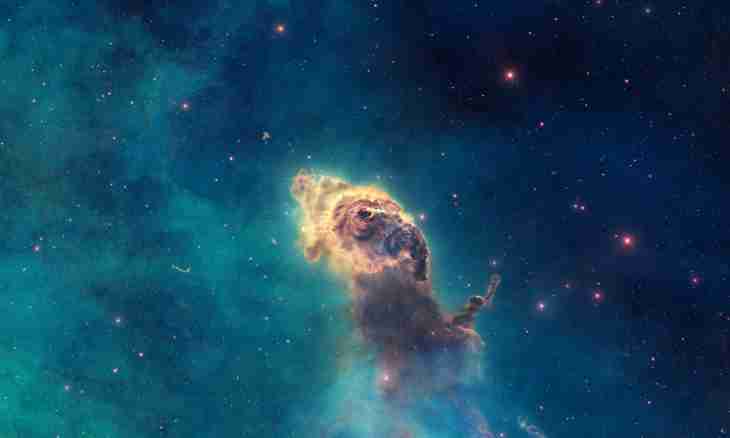Scales of the Universe are so grandiose that the modern astrophysics, operating in many respects with terrestrial concepts, cannot solve many problems connected with its origin and existence so far.
The Universe is the fundamental concept of astronomy in practice including at this stage only a part of a material world which can be studied by modern natural science methods. The term "Universe" means something, not having borders therefore anyway, also final knowledge of it is impossible. However in 1915 Einstein published "the theory of relativity" according to which the Universe is boundless, but it of course, and just as any sphere which does not have borders has a certain volume and surface area. In other words, moving from one point of the Universe, we can return to initial with adjustments for the fourth measurement – time. The theory of relativity will "work" until, according to other theory – the theory of the extending Universe, people of Earth are able to observe (to be exact, to find out by means of electromagnetic space radiations) galactic processes.
Thus, the person who underwent for the last two thousand years evolution of ideas of space from geocentric to heliocentric returned back again, and placed in the center of the Universe not Earth, of course, and the Milky Way, the native galaxy. However, if the theory of relativity is right also for other points of the Universe, then, after all, galaxies will stop the run and according to one version will begin rapprochement that sooner or later this compression generated again the Big Bang as which main proof serves emergence of forces of anti-gravitation at long distances which nature is still unknown.
According to other version during that instant when kinetic energy for running start of galaxies ends, there will come thermal death, and the Universe will break up to atoms, protons neutrons, quarks and so, probably, again indefinitely though the modern science cannot answer yet whether there are particles less quarks. Besides, in modern cosmology one of the major questions is also the question of the Universe form: whether it is spatial and flat (that is whether laws of Euclidean geometry are applicable to it), or after all because of the local "folds" which are formed in view of distortions of space time from massive objects it is only close to that. And, at last, one more group of questions on which the modern researchers dealing with problems of origin of the Universe work: whether the Universe of initially rotating "was born"? This hypothesis refutes the theory of the Big Bang according to which energy began to extend equally extensively at once.
